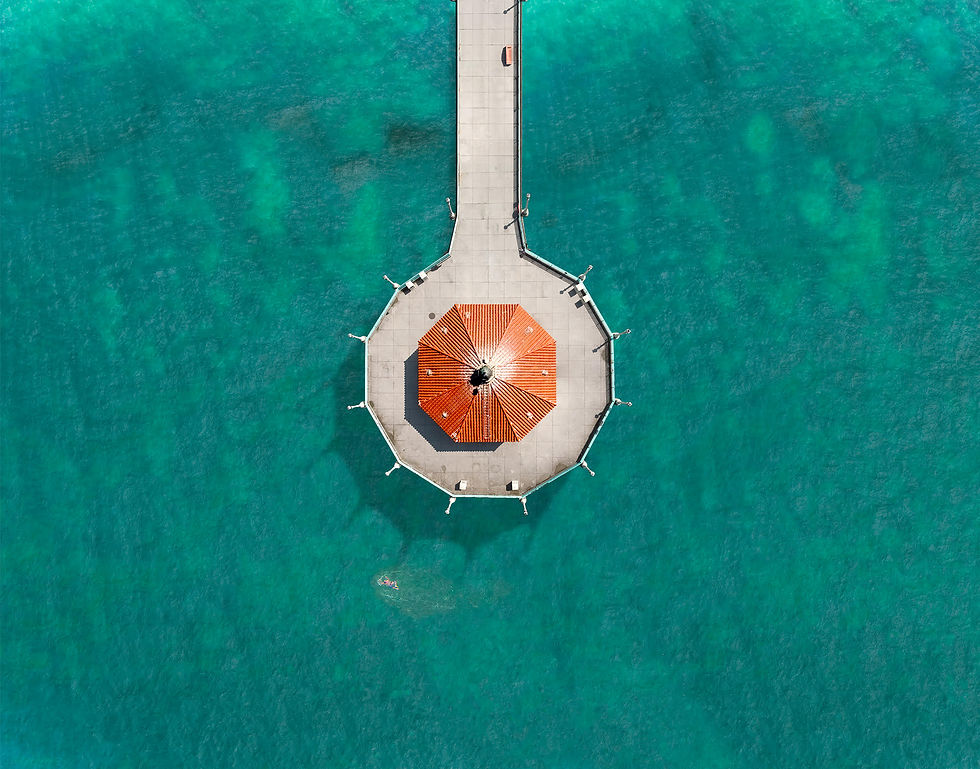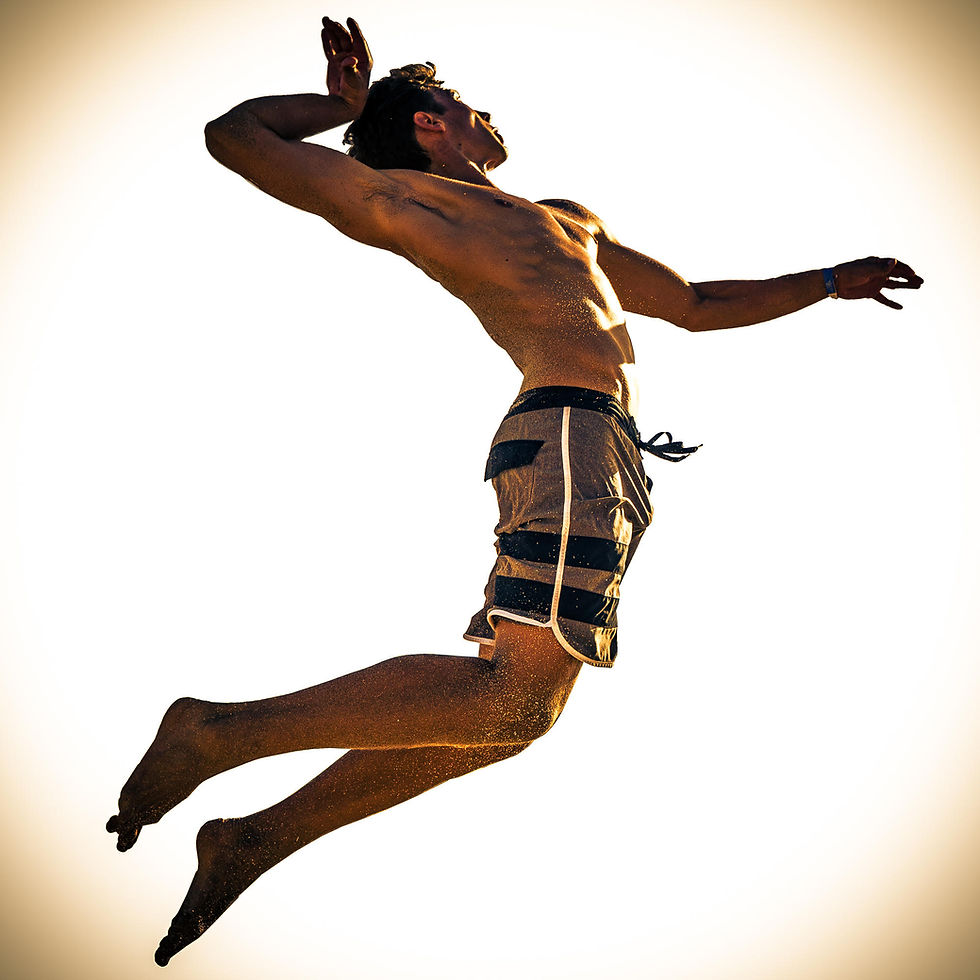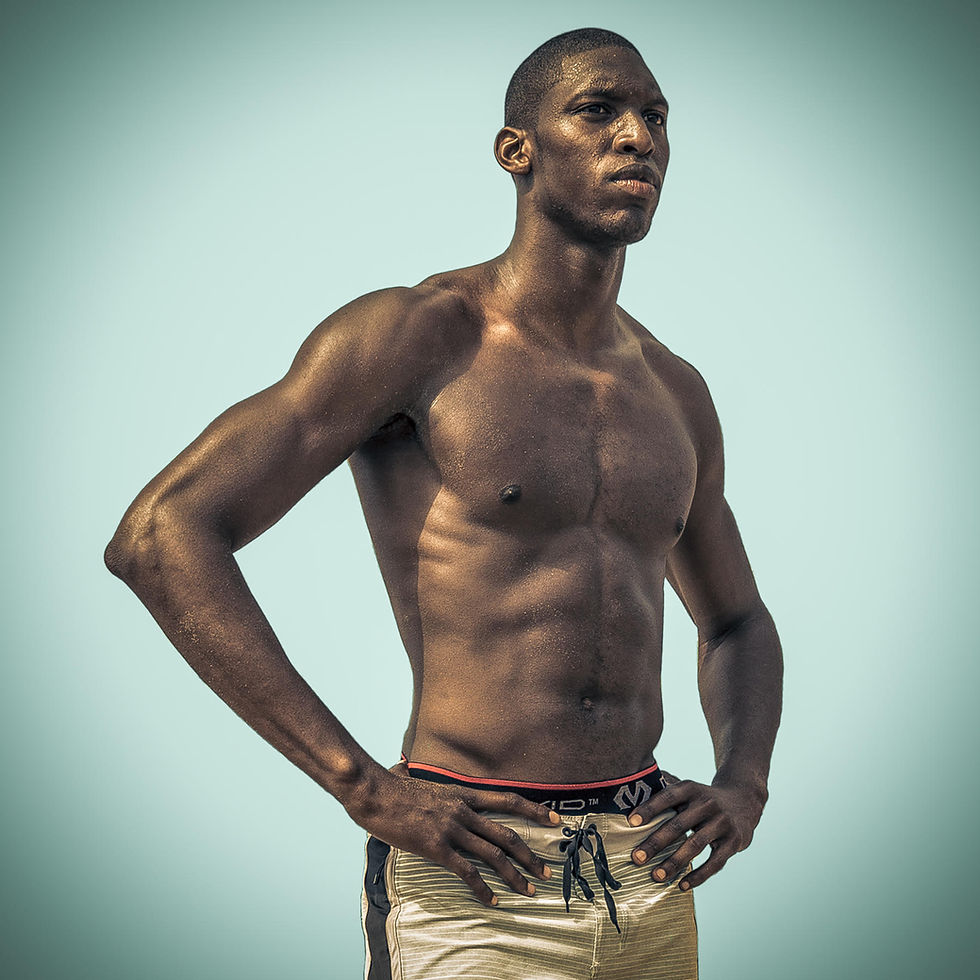Araby Patch on His Creative Process and What Truly Inspires Him
- Feb 27, 2018
- 6 min read
Araby Patch is an American photographer and filmmaker based in LA. Araby developed his first image from a pinhole camera at age 10. Since then, he has been fascinated by photography and the power of capturing a single moment. Over the years, Araby has captured many beautiful images including stunning sports photographs and portraits. Araby is also an accomplished teacher who got his Masters Degree in Education from Columbia University. He become “Teacher of the Year” in the Bronx after creating a program in which kids built their own musical instruments. After spending some time working with the youth, Araby was inspired to write a novel which was published in 2010. He has been a creative all his life and is a great example of a multi-talented person that Boonji likes to honour and celebrate.

What were you creative outlets as a child? Tell us about what activities you enjoyed doing when you were growing up?
My mother and father did a lot of art around the house. So I had access to pottery, drawing, painting, photography, dance, music, etc. I was always encouraged to experiment. Early on I did a lot of drawing. When I was in fifth grade I got to do some pinhole photography which was pretty cool. My father had a darkroom so by the time I was 12 I was loading my own film and doing my own developing and printing. I spent a lot of time in the darkroom watching images come to life.
Was there a certain experience that sparked an interest in photography?
Nothing that I can site as a spark, per se. Just an accumulation of joy from taking and making pictures. I was always being told I was good at it, and I enjoyed it, so I kept doing it.
Do you think photography can be considered a type of time travel? What, in your opinion, is the most magical thing about capturing images?
I understand the idea of a photo being a captured moment in time - but I like to drop the “time" part and just think of a photo as a moment. A present moment. Right now. The moment you look at it. And that moment may be absolutely meaningless, or it might be emotionally compelling beyond measure. The magic of taking pictures for me happens when I can feel something in life and I photograph it, and the image captures that reality and has the power to move people emotionally when they look at it. For me the most compelling emotion is love. For me it is the foundation of our emotional and spiritual bodies. So when I look at something I’m going to photograph, I try and see the love and connect to it. When I feel it, I shoot.

What is your favourite part in the whole process of creating an image?
I’ve been forced to do a lot of Photoshop lately and it’s reconnected me with the printing process. When I was developing my own prints I recall having to do a lot of light manipulation to get a print just right. I've embraced this idea (with the power of Photoshop) that the taking of an image is really just the first step of the image’s journey. So right now my favorite part is tuning the image so that it’s transmitting at maximum volume.

Do you have a favourite photograph which you are most proud of and if yes, what’s the story behind it?
I’ve lived all around the world and I always felt like the best place I’ve ever been is where I’m at. I feel the same about my photos. On some level I’m proud of them all, and the good ones have all been my favorites.
When it comes to inspiration, is there anything in particular that lights the spark of your creativity?
I love people. I love people so tremendously and completely. I’m inspired by people. I’m not talking about just the people who do tons of cool shit and have success and lots of money. I’m inspired by everyone. If you look at anyone close enough you will see love and beauty. I’m always trying to capture that love and beauty when I photograph people, and I know that if I fail to capture it it doesn’t mean it wasn’t there, it just means I needed a little more time to see it.

You are also a filmmaker, can you tell us about this medium and how it allows you to express yourself differently to photography?
I see film, and filmmakers, as the ultimate artists. Making a good film that transports an audience to another world is by far the hardest thing to do in the arts - in my opinion. I dabbled in it for a few years and absolutely loved it, but I wouldn’t consider myself a filmmaker at this point. I have way too much respect for the people who actually release films into the world to consider myself a filmmaker. I’m definitely a better photographer because of my experience in film/video.

You did a gorgeous commercial for Apple - a bird’s eye view of the ocean - which you shot on iPhone 6. Can you tell us about how you shot it?
First day I got the phone I came home and tested the video (slow-mo) and was pretty blown away. At the time I was doing a lot more video. I knew the waves were pretty big and it was a bright day, and I thought (no joke) I’m going to go film an Apple commercial. So I went down and started shooting the waves as I was walking up the Hermosa Beach pier. A seagull jumped off the rail and I caught it and I stopped and played it back and it looked pretty cool. I saw another seagull up the rail and just waited for a big wave to time it right. I went home, did a quick music edit, and uploaded it to YouTube. Then I sent an email to Apple with the link and for about 5 months nothing happened. But I kept showing it to people and telling them that it was going to be an Apple commercial. Eventually they contacted me and it became a commercial. It’s a great study in the power of positive thinking.
You wrote and published a book called Of Dreams and Drums. Could you tell us about the process behind it and how it felt writing it, as well as what inspired you to tell this particular story?
I taught GED in the South Bronx (NYC) for a few years. I created a drum building program where we would hand build a kind of African wooden hand drum called the Ashiko. I would spend weeks with the same kids sawing and sanding and making these drums. During the process some of the street hardened kids (who were basically avoiding jail by taking GED classes) would let their guard down and I would get to know them beyond the image they’d created for the streets. But as soon as they walked out the door all that was gone. I was fascinated by the transformation and also well aware that they were probably eventually going to get destroyed by either the streets or the law. I loved these kids and I didn’t want to see that happen. So the book is a story about a good kid who gets caught up in some bad stuff, which is pretty much the story of every kid in the South Bronx, and he’s “saved” by a humble old man who plays the drums and lives in a community garden. But really it’s his connection to music that saves him. I’m a romantic, I believe that art gives us confidence and a connection to something bigger than ourselves. Touching your creativity is like touching God. I heard a Kanye song the other day and there was this lyric that summed it up for me, "Cause they make us hate ourself and love they wealth”. Kids in a place like the South Bronx and any other economically depressed neighborhood can easily fall victim to this cycle of feeling like only riches will save you. The book is trying to say it’s not the money you need, it’s you that needs you.

To what extent do you think your life experiences influenced you and shaped you into the creative person you are today?
To the extent that one cannot exist without the other.
The spirit of Boonji is to support and protect the creative. Is it important for you to support other creatives and what role do you see yourself playing?
I think what Boonji is doing is great. Creatives have always supported each other, and I think having another conduit for supporting artists to support artists is awesome.
What is your idea of happiness?
Doing what I love every single day.

What would you like to say to your 16 old self?
Forget everything every adult or friend ever told you and learn to listen to yourself first.
What are you currently working on?
Helping to raise my son and trying to keep everything moving forward. I’m currently working on a startup - a marketplace for photography mentors. Also doing a bunch of fine-art aerial photography, as well as a bunch of other photography projects.
Follow Araby on Instagram and like his Facebook Page.




Comments